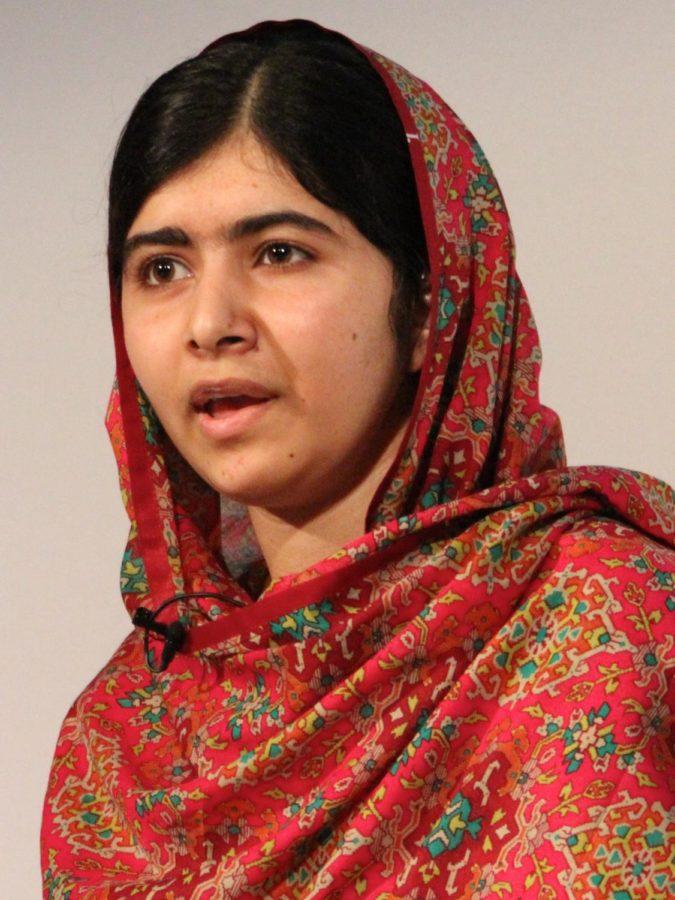Editorial: Malala’s visit to Pakistan is a good sign for the future
Malala Yousafzai recently was awarded with the Nobel Peace Prize. Her documentary, ‘He Named Me Malala’, follows her mission to promote women’s education.
April 8, 2018
Recently, Malala Yousafzai, the world’s youngest Nobel laureate, set foot in her hometown, Swat, Pakistan, for the first time after the Taliban attacked her. Malala was shot in the head by Taliban in 2012 for spearheading the campaign for women’s right to education in Swat.
Malala’s visit to Pakistan is a good omen for the country, offering a chance to support its Nobel laureate’s mission to promote women’s education and also display an improved security situation to the global community.
Malala’s visit to Pakistan can throw light on the importance of women’s education in Pakistan where over 3 million girls are still away from primary schooling. However, recent governments have taken steps to ensure primary education for all. Still, up to 50 percent of children are out of schools.
Recently, a new girls’ school, built with Malala’s Nobel prize money, has been inaugurated in her home district of Shangla, Swat Valley. Residents of the area are happy with her efforts to encourage and improve women’s education in the area. Authorities can take advantage of her visit and work eagerly to build more schools in remote areas to bring education to everyone in the area.
Malala’s trip was also highly symbolic and a testament to an improved status quo of the country. Her visit has proved the triumph of security forces in their long battle with militancy, and shows the government has gained control of the area, which discards the accusations of international community, especially from the U.S., that the northwest areas of Pakistan remain a safe haven for militancy.
Malala left Swat in 2012 with closed eyes and now returned with open eyes. She mentioned during her address “My dream has come true, invaluable sacrifices of my brothers and sisters have brought back peace in my hometown.”
Her safe visit displays no more presence of Taliban in the area, and open schools provide enough assurance that peace has returned to the region. Moreover, Malala’s message about returning home permanently after completing her studies is commendable. However, it will be a real test of the security forces.
Malala has come a long way since she was attacked, and now she has became a global symbol of resistance, human rights, women empowerment and women’s right to education. She has been honored by renowned global leaders for her campaign for women’s education and rights around the globe and won several prestigious awards along with 2014 Nobel Peace Prize.
However, Malala has gained international praise and recognition for her noble cause; she remains a polarizing figure in Pakistan. The conservative society of the country oppose her emphatically. However, Malala loves Pakistan and envisions a better future for the country. Her visit may incite a change in the mindset of the conservative society that supports violence against women in the country.
In short, Malala’s visit is a good sign for the prosperous, well-educated and peaceful future of Pakistan. The country must support its Nobel laureate’s mission and ensure every child in Pakistan gets an education because education can accost terrorism and extremism.
















